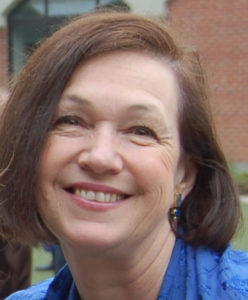
 By DR. MIRIAM ACZEL & DEBRA ACZEL
By DR. MIRIAM ACZEL & DEBRA ACZEL
The COVID-19 pandemic and the restrictions put in place to keep our families, friends and others safe have meant many of us are spending increasing amounts of time indoors. Additionally, many work activities, social activities and classes that would normally be in person have largely moved to virtual meetings, many of us are now attending Zoom meetings with colleagues, helping our children with online lessons, and substituting significant amounts of ‘screen time’ and less access to nature. Is this harmful to our health?
The Need for Nature: ‘Vitamin N’
Richard Louv coined the phrase “nature-deficit disorder” with the publication of his book Last child in the woods: Saving our children from nature-deficit disorder in which he argued that increasing urbanization and technological changes have increased our lack of connection to the natural world. As we—along with our children—remain more locked away from nature than ever before, Louv’s message is compelling. In a subsequent book Vitamin N (for “nature”) he provides a wealth of information on how to help our children and families reconnect to nature through activities and advice, with benefits on mental and physical well-being. Advice includes how to incorporate nature into homes and gardens and importantly addresses how to create experiences of the natural world inclusively.
Health Benefits of Trees
According to the Nature Conservancy, a “healthy tree can lead to a healthy you and me”–and a recent study shows that spending time in nature—such as walking through trees in an urban park, a tree-lined trail, or a forest—correlates with a decrease in levels of stress and anxiety as well as depression. Another health benefit of forests is that trees remove greenhouse gases and especially particulate matter (the type of air pollution most deleterious to our lungs). Trees ‘scrub’ air pollution through directly intercepting airborne particles, where most particulates are captured on the surface of some of the tree and some particles can even be absorbed directly into the tree’s tissues. This is particularly important in cities and other areas with high concentrations of pollution—yet another benefit of urban reforestation.
The Ancient Art of Shinrin-Yoku
The Japanese have famously advocated the benefits of nature for both physical and mental well-being. In fact, they often practice a type of meditation known as forest bathing or shinrin-yoku (in Japanese, shinrin means forest and yokutranslated to bath). The practice has been shown to benefit patients following medical procedures and can aid our immune systems, lower blood pressure, assist with anxiety and stress-related phenomena and more. Medical research has given us yet another reason to love nature and work to protect it.
Japanese physician and researcher Dr. Qing Li provides a compelling case for the benefits of forest bathing—and no, there is no water in this type of bath. Dr. Li leads an organization called the Society of Forest Medicine that sponsors research on the health benefits of forest. Forest bathing is described as a short trip to a forest for relaxation where you breath in wood essential oils: “…antimicrobial volatile organic compounds derived from plants.” The Society’s scientific research on the benefits of forests on health found that bathing trips reduced blood pressure and increased the expression of certain anti-cancer proteins, among other significant effects. A study also found that time in forests can also improve sleep patterns.
Reconnecting With Nature
This ancient meditative Japanese practice does not involve exercising outdoors but rather simply being in nature, allowing us to reconnect with the natural environment through all our senses—sight, sound, smell, touch, and taste. In this way, “[s]hinrin yoku is like a bridge. By opening our senses, it bridges the gap between us and the natural world.”
So, how can we practice shinrin-yoku?
According to shinrin-yoku expert Dr. Li, the first thing to do is to find a place to immerse yourself in nature, and unplug—leaving behing mobile devices, cameras, and other distractions. As Dr. Li explains, the key is taking your time and immersing yourself in the wonders of nature:
“You are going to be walking aimlessly and slowly…Let your body be your guide. Listen to where it wants to take you. Follow your nose…It doesn’t matter if you don’t get anywhere. You are not going anywhere. You are savoring the sounds, smells and sights of.”
Li further explains that the “key to unlocking the power of the forest is in the five senses” and suggests listening to the sounds of nature from birdsong to the breezes gently rustling the trees. Dr. Li advices forest bathers to “[d]rink in the flavor of the forest and release your sense of joy and calm. This is your sixth sense, a state of mind. Now you have connected with nature. You have crossed the bridge to happiness.”
So why not try out the art of immersing yourself in the natural environment, reconnecting to Mother Nature, yourself and all five senses, and finding peace and happiness among the trees?
Dr. Miriam Aczel is Leaders in Energy’s Director of Communications. Miriam is a postdoctoral scholar at the California Institute for Energy & Environment (CIEE) based at UC Berkeley, working on the Oakland Ecoblock project. She is also currently an Honorary Research Associate at Imperial College London’s Centre for Environmental Policy, with a focus on international energy science and policy, with a focus on mitigation of environmental and health impacts of shale gas. Miriam earned her PhD at Imperial College London in 2020, where she was a President’s PhD Scholar.She is also co-founder and co-director of the Amir D. Aczel Foundation for Research and Education in Science and Mathematics, a nonprofit based in Cambodia.
Debra Aczel has over 40 years in educational program management, including as program manager at MIT’s Terrascope Program—an interdisciplinary environmental program working to solve pressing global issues. She is co-founder and current co-director of the Amir D. Aczel Foundation for Research and Education in Science and Mathematics, supporting cultural and educational projects in Cambodia.



Leave a Reply